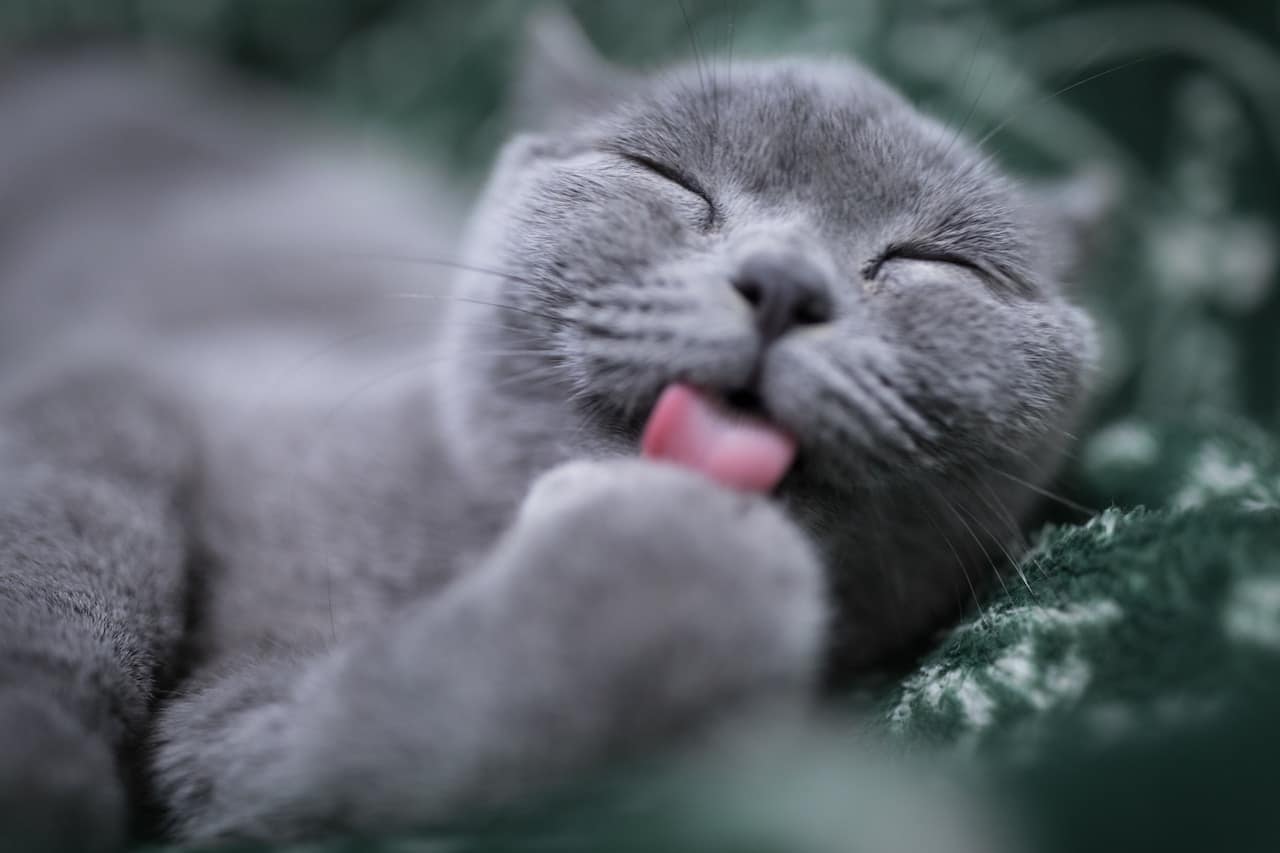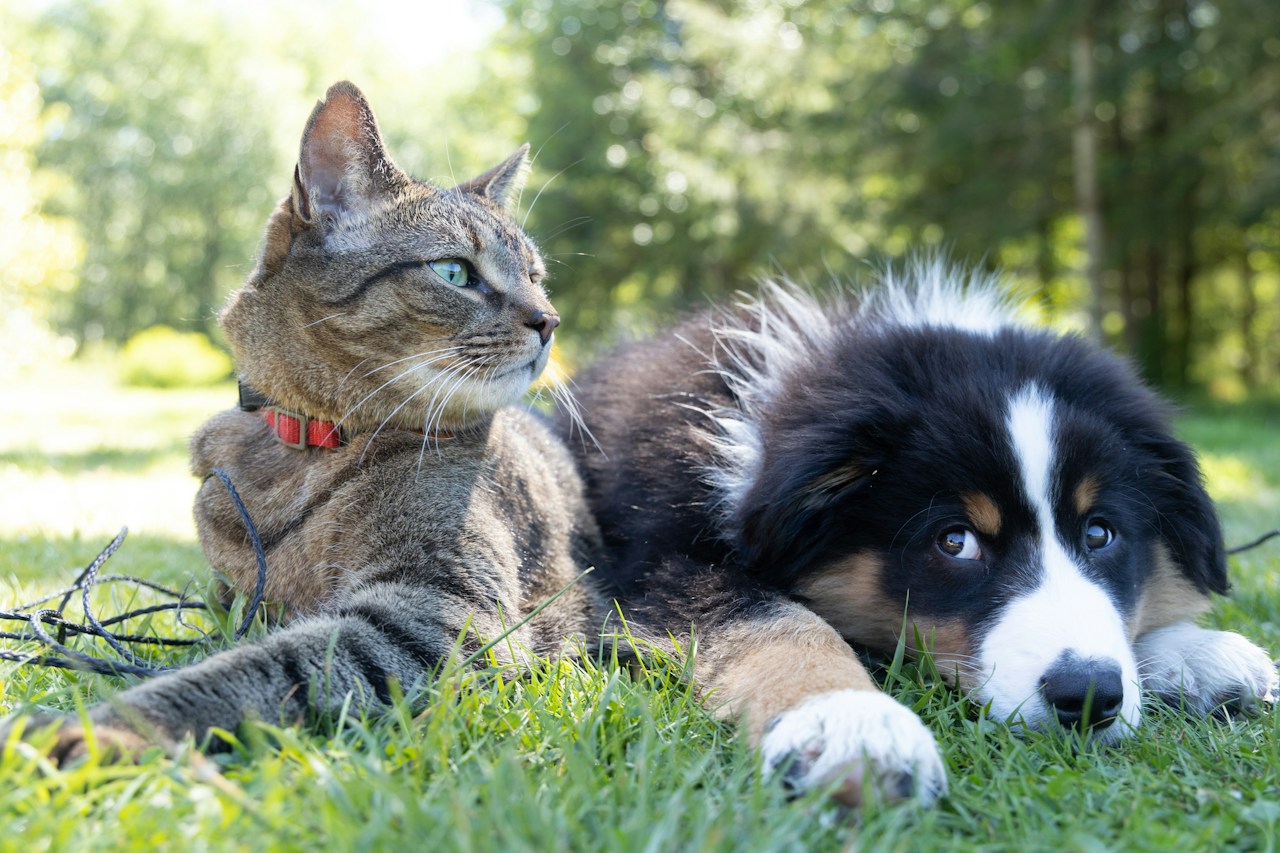Parvovirus is a sickness that dogs can get, and it spreads easily, especially to young dogs that haven’t had their shots. It makes them very sick, causing problems like dehydration, throwing up, and diarrhea. Now, if you’re a cat owner, you might be thinking, “Can cats get parvo too?”
Well, the answer is yes. Cats can also catch parvovirus, especially if they are young, haven’t had their shots, or missed some of them. Even though it’s a serious illness, the good news is that if you act fast, you can help your kitty fight against it.
In this article, we’re going to talk about what causes parvovirus, how to tell if your cat has it, how the vet figures it out, how to treat it, and most importantly, how to stop it from happening in the first place.
Read Also: Emotional Support Cats
Table of Contents
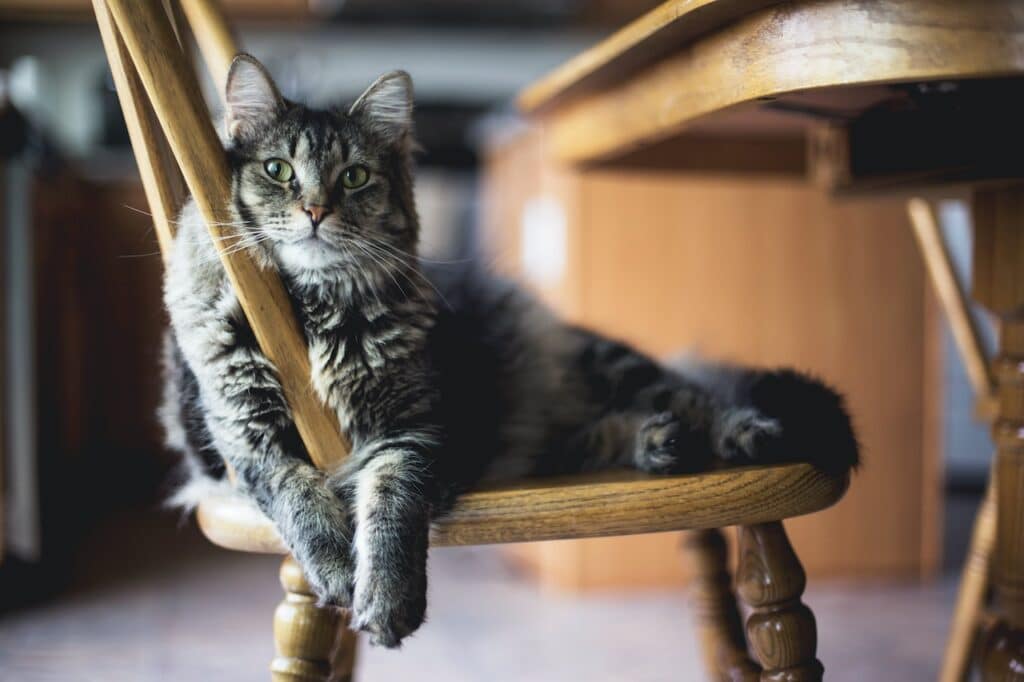
What is parvovirus in cats?
When a virus gets into an animal’s body, it goes to specific cells, and we call this virus tropism. Feline parvovirus likes to affect quickly growing blood cells, especially the ones in the intestines, bone marrow, and the cells of growing baby cats (kittens).
If a cat gets this virus, it can make their white blood cells go down, making their immune system weaker. This means the cat can easily get other sicknesses from viruses or bacteria, which can sometimes be serious and even deadly. In kittens, the virus can also harm their brain, making it hard for them to move or see.
Sometimes, a kitten can get very sick and even die before the owner sees any problems. Kittens can go downhill fast, especially when they stop eating and drinking, which makes them very thirsty.
Young kittens who haven’t had their shots, or missed some of them and live with many other cats are most likely to get this virus. For them, the virus can be very dangerous, and many kittens might not survive, up to 9 out of 10 can die.
Older cats usually don’t get as sick, and if a mommy cat (queen) gets the virus when she’s pregnant, she might not look sick at all. But her babies growing inside her might get the virus and either die before they are born or have problems with their brains as they grow.
Is feline parvovirus the same as canine parvovirus?
No, the sickness in cats called feline parvovirus is not the same as the one in dogs called canine parvovirus (CPV-2). They are both in a group of viruses called “parvovirus,” like a big family of viruses. But, even though they’re in the same family, they have different types or strains that affect either cats or dogs specifically.
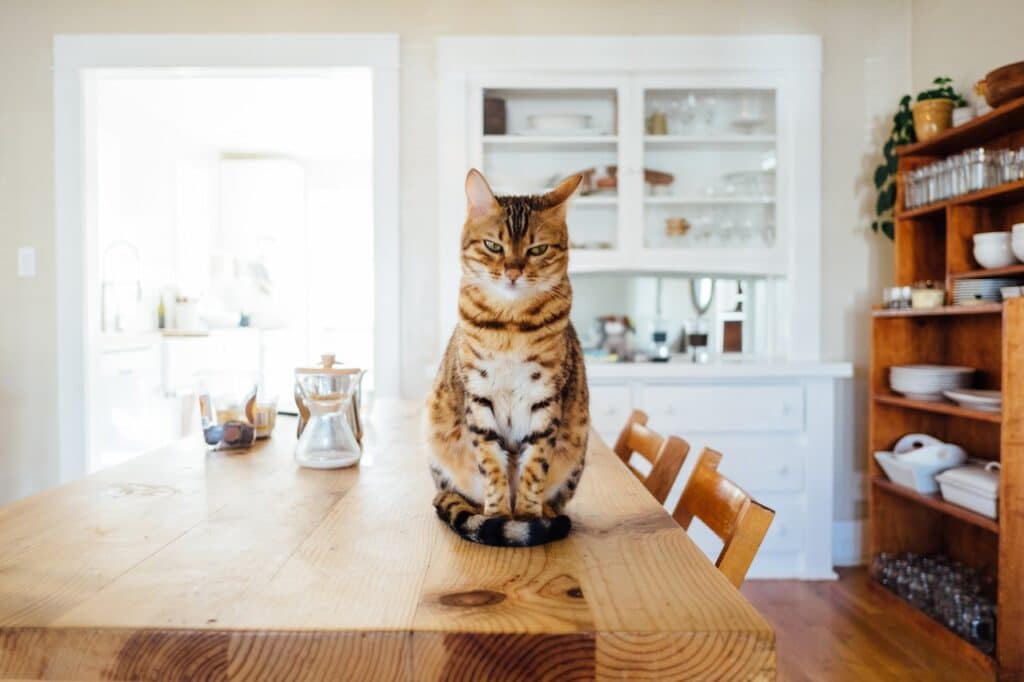
Can cats and dogs spread parvovirus to each other?
The cat sickness called feline parvovirus doesn’t make dogs sick. The kind of parvovirus that usually affects dogs, called canine parvovirus-2 (CPV-2), doesn’t harm cats. But, there are other types of canine parvovirus (CPV-2a, 2b, and 2c) that can make cats sick. If your dog has parvovirus, it’s important to keep him away from your cats to prevent them from getting sick.
How do cats become infected with parvovirus?
Feline parvovirus is a very strong virus. It can stay in the environment for up to a whole year, even without being inside a cat.
It’s tricky to know exactly where or how a cat got this virus. But usually, it happens through:
- Touching liquids from a sick cat, like spit, snot, pee, or poop.
- Eating food or drinking water that has the virus.
- Being around things or places with the virus, like cat toilets, bowls, beds, or grooming stuff.
- If a person’s hands or clothes have the virus.
- Getting it before birth or through the milk of a sick mommy cat.
Even if a cat gets better, it can still spread the virus for about 6 weeks, even if it looks healthy.
Signs of parvovirus in cats
The signs of feline parvovirus mostly have to do with the stomach and digestion. If you see these signs in your cat, it’s important to go to the vet quickly:
- Throwing up or having runny poop, with or without blood.
- Getting very, very thirsty and dried out.
- Foam coming out of the nose and mouth, maybe with some blood.
- Not wanting to eat or drink at all.
- Losing weight super fast.
- Acting sleepy or not moving much.
- Having a fever.
- Feeling sad or not wanting to play.
- Showing strange signs like shaking their heads, being clumsy, or having problems with their eyes.
- Having very pale or dry gums or ears.
Sometimes, a cat can die suddenly without showing any of these signs. So, it’s super important to get help from the vet quickly if you think your cat might have feline parvovirus.
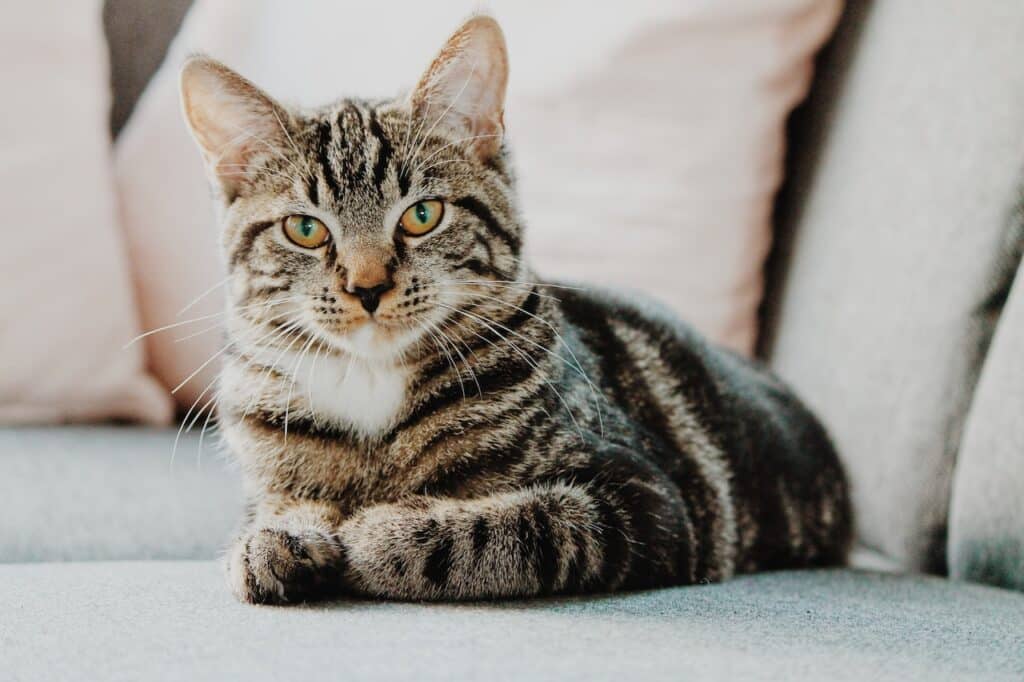
Diagnosis of feline parvovirus
To find out if a cat has parvovirus, the vet does some checks. They look at the cat’s history, how old it is, if it got all its shots, and what signs it’s showing. The vet also examines the cat.
Then, the vet might do some tests:
- Complete Blood Count (CBC): This test looks at the number of white blood cells to see if it’s too low, which can happen with parvovirus.
- Serum Biochemistry Profile: This is a test to check different things in the cat’s blood.
- Stool Analysis: The vet might check the poop to see if there’s something wrong.
The vet could order more tests based on what they find. These tests help the vet figure out if there are other problems the cat might have along with parvovirus.
Feline parvovirus treatment
Right now, there’s no cure or special medicine for feline parvovirus. The only way to help a cat is by giving them support, which means helping them get strong to fight the virus.
Here’s what the vet might do:
- Keep the Cat Hydrated and Fed: This is the main goal—making sure the cat has enough water and food.
- Make Symptoms Less Severe: The vet tries to make the cat feel better and lessen how sick they are.
- Treat Other Sicknesses: If the cat has other problems because of the virus, the vet helps with that. This might include staying at the vet’s office, getting fluids through a tube, getting new blood, eating special food, taking extra vitamins, and maybe antibiotics if there are other infections.
It’s a bit like taking care of a friend when they’re feeling sick. The vet and the cat’s owner work together to help the cat get better.
Can kittens survive parvovirus?
Kittens who haven’t had their shots or missed some when they are 3 to 5 months old are more likely to get feline parvovirus. This happens because the special protections they got from their moms when they were babies go away around this time.
When these protections go away, and the kittens are going through a big change called weaning, it makes them more likely to get sick. Sadly, if these kittens get parvovirus and haven’t had their shots, most of them, more than 9 out of 10, might not make it. It is why getting shots is important for kittens to stay healthy.
How to protect your cat from parvovirus
To keep your cat safe from parvovirus, the best thing to do is get them vaccinated. Your kitten should start getting shots, including the panleukopenia vaccine, when they are between 6 and 9 weeks old. Your vet will tell you when your cat needs more shots as they get older.
Here are some other things you can do:
- Keep your cats indoors: This helps them stay away from not just parvovirus but also other problems outside, like accidents or getting hurt.
- When you get a new cat, please keep it away from your other cats for 2 weeks: This is to make sure the new cat doesn’t cause any sickness to your other cats.
- Keep things clean: Wash your kitten’s bed a lot, and clean their bathroom with a special cleaner. Using a bit of bleach can help kill the virus. But be super careful—cats shouldn’t lick or touch bleach.
- Keep things clean at home: Wash your hands after you touch your cat or their things.
- Keep your cat healthy: Give them good food, let them play, and ask your vet about special things your cat might need.
- Regular vet visits: Take your cat to the vet regularly to make sure they are healthy.
- Doing these things will keep your cat safe and healthy!
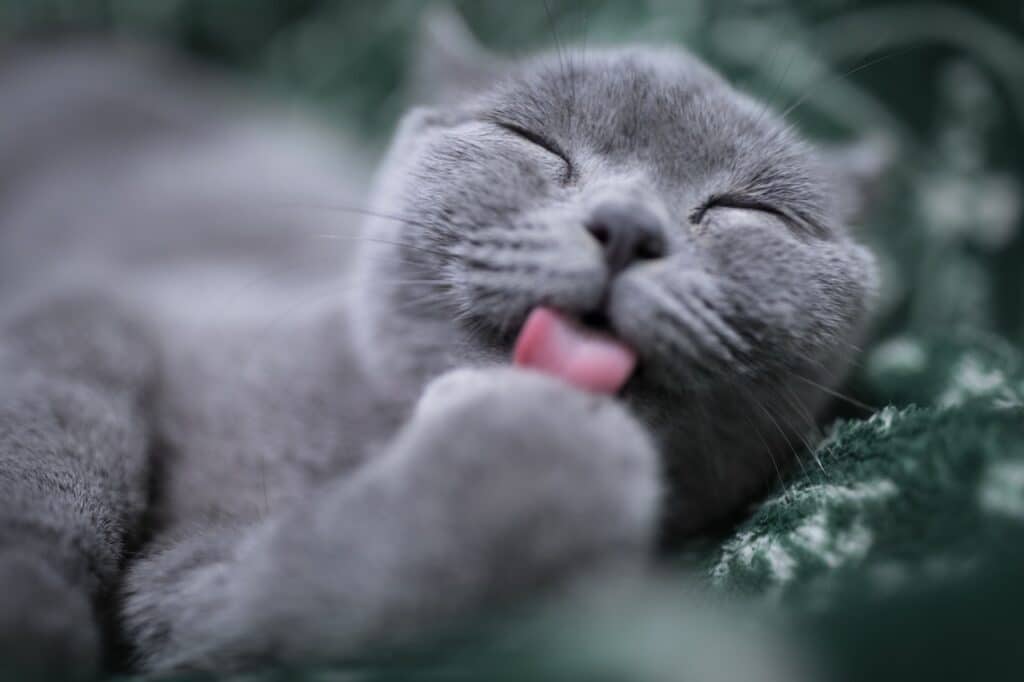
Conclusion: Can cats get parvo?
Just like dogs, cats can get parvovirus. Feline parvovirus spreads easily, especially to young kittens who haven’t had their shots. If you quickly take your cat to the vet when they’re sick, there’s a good chance they can get better.
But here’s the good part: giving your kitten shots lowers the chance of them getting feline parvovirus a lot. Because this virus is tough and can infect any cat, getting shots is the best way to keep your cat safe from it.
